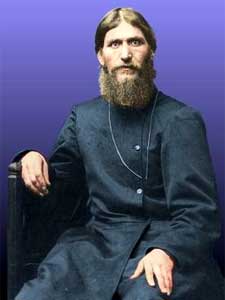 |
| Gregory Rasputin held an extraordinary amount of influence over the Russian royal family in the 1910s. His reputation for treachery gave him the nickname of the "evil monk." (Photo courtesy of The Alexander Palace Time Machine) |
St. Paul, Minn. — The Russian monk Gregory Rasputin is one of the most controversial figures of Russian history. Was he a hero to the peasant class who represented their yearnings at the highest levels of the court?
Or was he the "evil monk," a villain with streaks of treachery and lechery? Rasputin has been identified as both, and more, throughout history.
However he is remembered, he is a central figure in the closing chapter of imperial Russia, and his assassination in 1916 is seen as a pivotal event in the downfall and overthrow of the Romanoff dynasty of Czars.
Minneapolis author Robert Alexander has written a new novel set in those turbulent times, and told from the point of view of Maria, the title character of "Rasputin's Daughter."
Alexander's new novel follows his 2003 bestseller, "The Kitchen Boy," which was set during the Bolshevik Revolution in 1918 and follows the story of the assassination of the entire Russian royal family.
Alexander talked with MPR's Tom Crann about his fascination with Russian history, and about what kind of person Rasputin really was.
To listen to the interview, choose the audio link in the right column.




